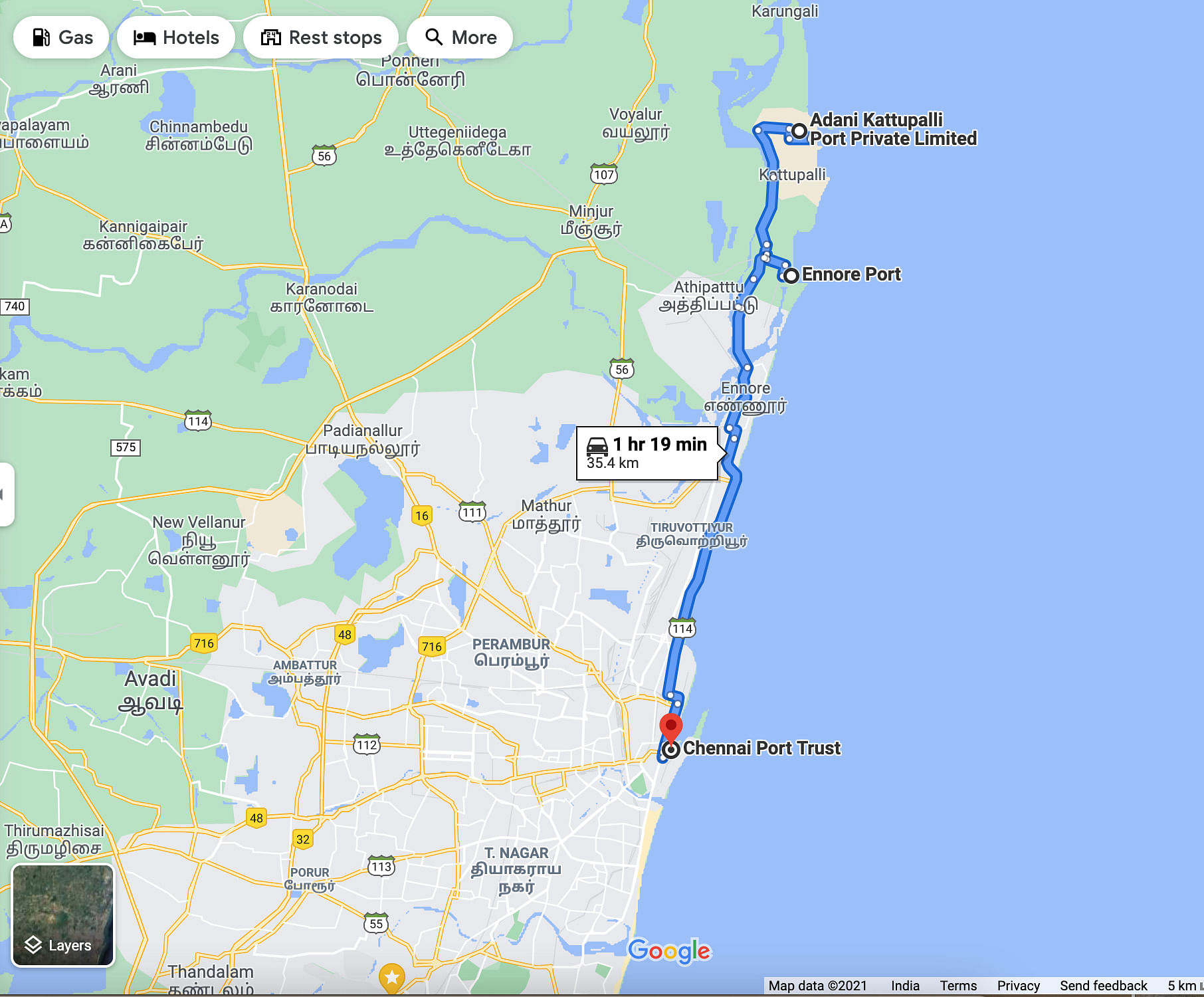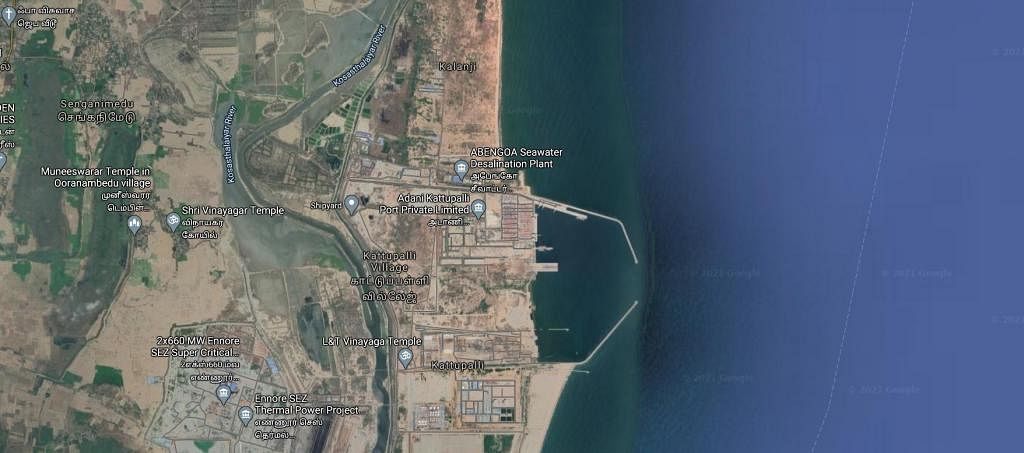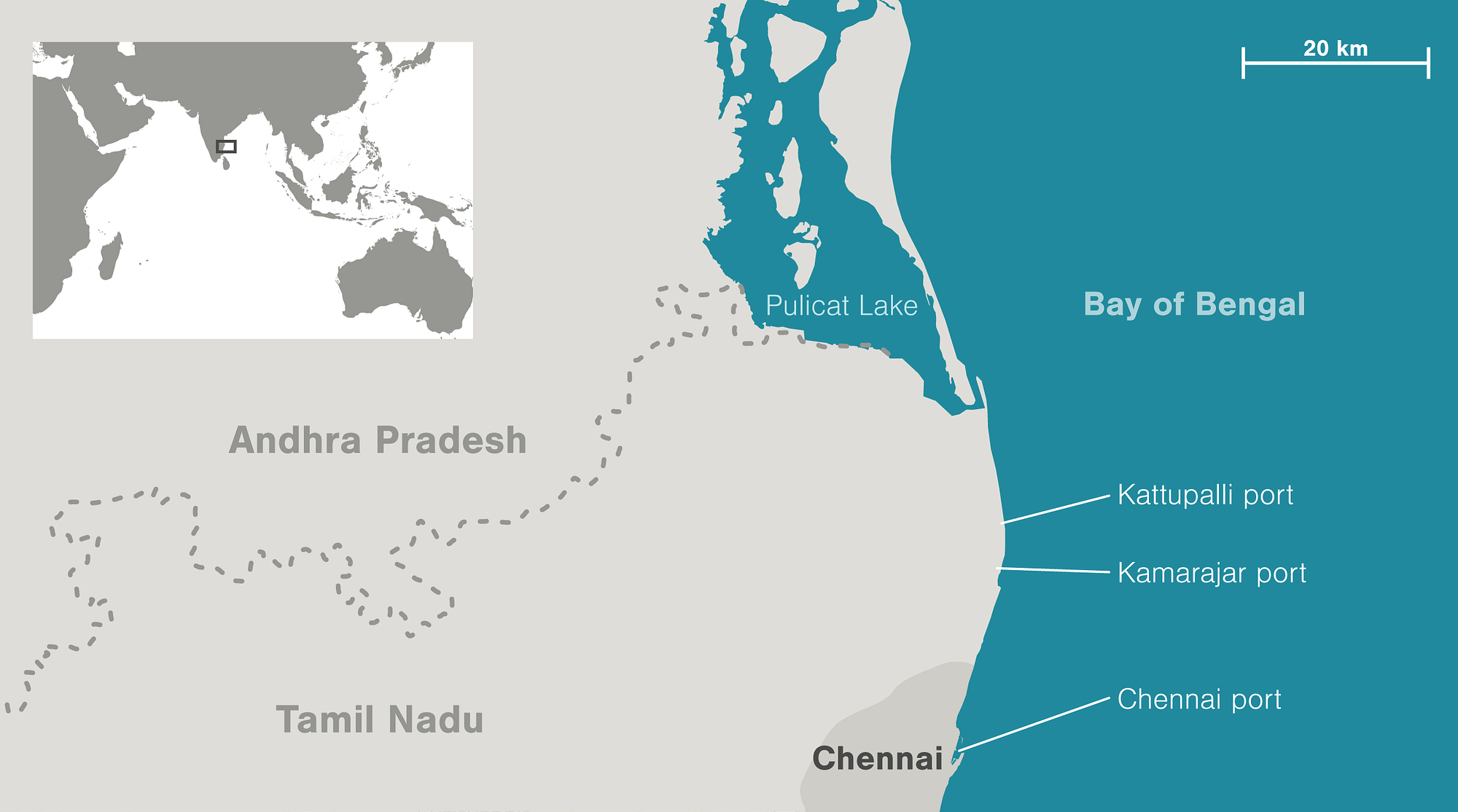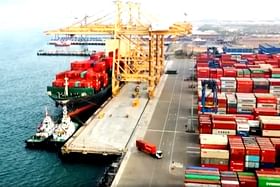The port expansion involves reclaiming land by depositing dredged sand into the sea, and thereby faces significant opposition from environmentalists.
The Tamil Nadu Pollution Control Board (TNPCB) has announced that a public hearing will be held on 5 September regarding the expansion of Adani group’s Kattupalli Port in Tamil Nadu.
The Kattupalli port, classified as a minor port by the Tamil Nadu Maritime Board, was acquired with a 97 per cent share by the Adani Group from Larsen and Toubro Limited (L&T) in July 2018 and renamed Adani Kattupalli Port Private Limited.
The port, located in Thiruvallur district, 30 kilometres north of Chennai, provides maritime transport to the hinterland of north Tamil Nadu, Chennai region, Bengaluru region, and South Andhra Pradesh.



Kattupalli Port has vast infrastructure which handles multiple types of cargo. With deep draft berths and multipurpose terminals, the port efficiently handles the largest bulk carriers in the world.
Kattupalli Port is an all-weather port with direct berthing facilities. It is a deep draft port capable of handling vessels of draft up to 15.0 metres.
The port presently has three berths, Berth-1 of 353 metre length, and Berth-2 and 3 having a combined length of 654 metres in a line.
The Expansion Plan
In 2019, the company applied for environmental clearance to expand the port’s capacity to expand Kattupalli Port’s handling capacity from 24.65 tonnes to 320 million tonnes, an increase of almost 1,200 per cent.
The company plans to extend the port to 6,111 acres from 330 acres at a cost of Rs 53,031 crore, turning 2,000 acres of sea into land.
The proposed expansion, outlined in the “Proposed Revised Master Plan Development of Kattupalli Port,” includes the addition of multipurpose cargo berths with trans-loading facilities, backup facilities, independent port craft facilities, waste reception facilities, and conveyor systems.
According to the Environment Impact Assessment, the port is set to expand from its current area of 330 acres to 6,111 acres. Approximately 2,000 acres of this expansion will involve reclaiming land by depositing dredged sand into the sea.
Objections Raised
According to the Union Ministry of Environment, Forests, and Climate Change’s 2018 Environment Impact Assessment, the port’s enlargement will erode the northern part of the shore at an alarming rate of 16 metres per year. At the moment, the erosion rate is 8.6 metres per year.
The proposed expansion has faced significant opposition from environmentalists and opposition parties. In fact, the public hearing that was initially scheduled for 22 January 2021, had to be postponed due to Covid-19 regulations.
A group of environmental activists have expressed concerns that the Ennore-Pulicat backwaters will be transformed into an industrial area, which would have a severe impact on the livelihoods of local fishermen, reports The Hindu.
Additionally, they believe that this project would cause damage to Pulicat Lake, which is the second-largest brackish-water ecosystem in India.

The activists also argue that the construction of the port will exacerbate erosion along the Thiruvallur coast, which has already been identified as a highly-eroding coast by the National Centre for Coastal Research.
They are particularly worried about the potential impact on the Kattupalli barrier island, which serves as a protective barrier for the Pulicat Lake.
According to M Yuvan of Palluyir Trust, the proposed port would further increase the risk of floods in Chennai. This is because the port would block the Kosasthalaiyar River, which is currently the largest flood drainage system for the city. Yuvan highlights the importance of preserving this natural drainage system to mitigate the threat of floods.


